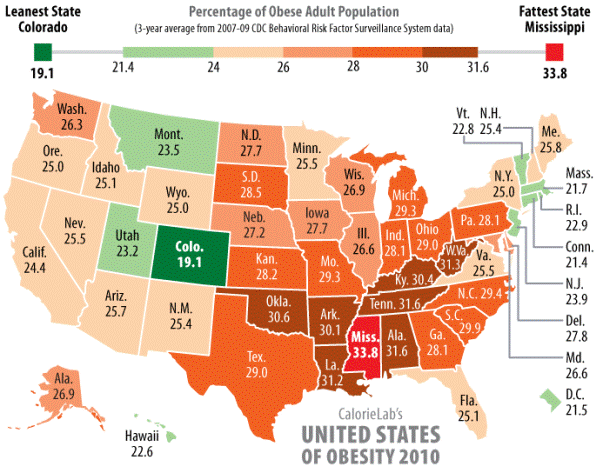Census 2010: Voters more Republican, more Texan, Fatter
The exciting Census headlines: Texas is the big winner in gaining Congressional seats, Texans vote Republican, Republicans win! Except -- the additional Texans are Hispanics, Hispanics vote Democratic, Democrats win! What a nice illustration of a serious problem in development empirics, known by the lusty, sensuous name of "heterogeneous effects." If you find handing out free bed nets lowers malaria, that still only applies ON AVERAGE to the group covered by the study. Within this group, the effects are likely heterogeneous behind the average positive effect, and there could be some sub-group for which the effect is zero. This is analogous to the Texas effect on voting-- on average, being Texan makes you vote Republican, but this is an average of heterogeneous groups, some of whom -- like the burgeoning Hispanics -- vote Democratic.
You could solve this problem by analyzing all the possible sub-groups. Unfortunately, both in politics and in development, this is unlimited, while research budgets and data are limited.
To illustrate imaginative sub-group possibles, my own pathbreaking insight is that one reliable group of Republican voters is, well, how to be polite about this(!?), are persons with somewhat larger belt sizes. Notice how many of the most brownest, reddest states are Red States, while the Blue State strongholds are in the relatively thinner Northeast. 
Also some sub-group effects could be spurious correlations. During my own struggles against middle-aged spread, I have not noticed any more inclination to vote Republican when my jeans size increases.
If this is all too methodological and obscure for you, then, congratualtions, you are normal. On the off chance that you are willing to work hard on this stuff, you can get many unexpected lessons. For example, if you want a roly-poly Santa for the office party, ask a Republican.
 From Aid to Equality
From Aid to Equality
